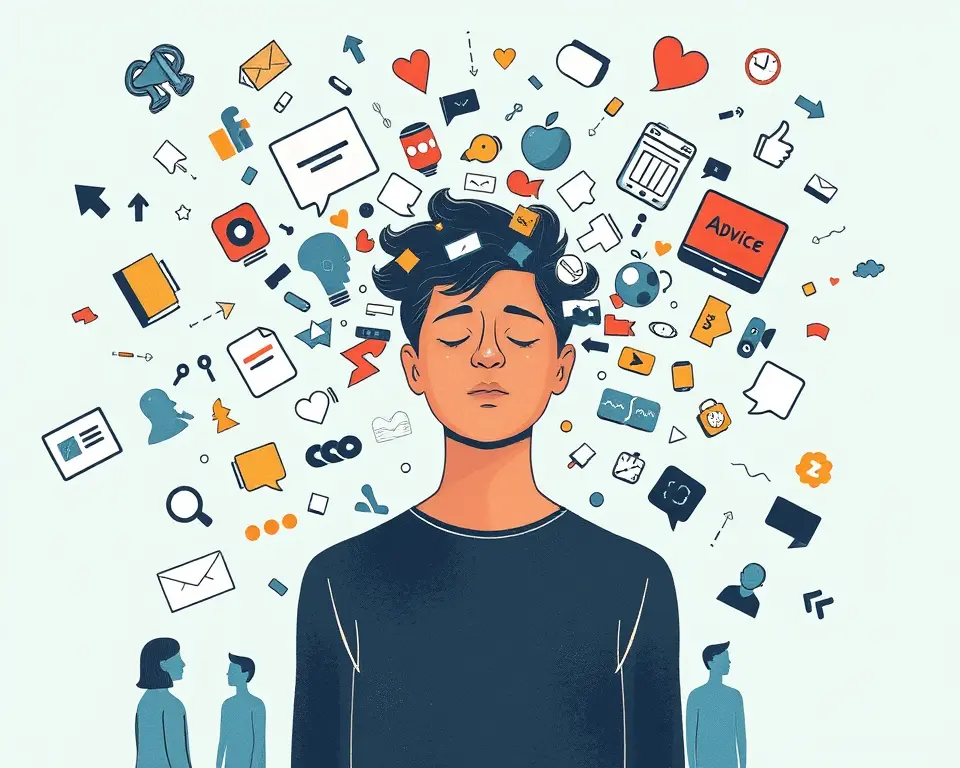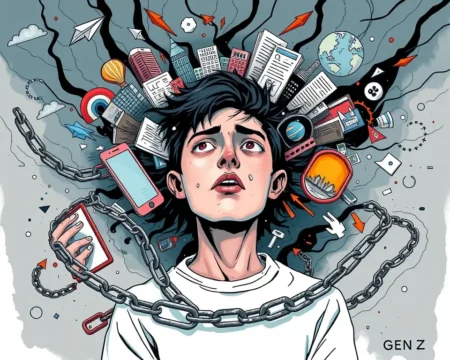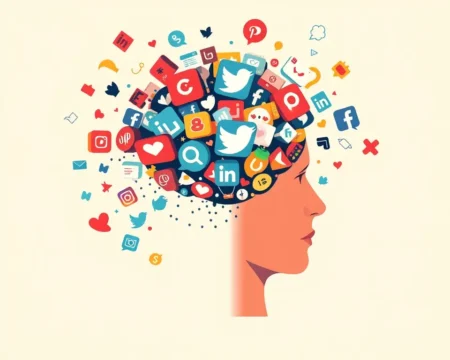TikTok has become a massive platform for sharing all sorts of life hacks, and mental health is no exception. But with so much information floating around, it’s essential to ask: Do these viral tips actually help, or could they be doing more harm than good? Let’s dive into the world of TikTok mental health hacks and explore the potential benefits and risks.
The Allure of TikTok Mental Health Advice
TikTok’s popularity has exploded, especially among younger generations, with many turning to the platform for mental health information and support. This surge in popularity is partly due to the increased awareness of mental health issues and the desire to find accessible and affordable resources.
Accessibility and Affordability
One of the main reasons people seek mental health advice on TikTok is its accessibility and affordability. Traditional therapy can be expensive and difficult to access, while TikTok offers a wealth of information at your fingertips, free of charge.
Community and Connection
TikTok fosters a sense of community, allowing users to connect with others who share similar experiences. This can be incredibly validating and can help people feel less alone in their struggles. Mental health advocacy accounts and niche interest groups provide spaces for open discussions and support.
Creative Self-Expression
TikTok provides an outlet for self-expression. Creating content, whether funny, heartfelt, or artistic, can be a powerful way to process emotions and showcase individuality.
De-stigmatization
By normalizing mental health discussions, TikTok helps break down the stigma surrounding mental illness. This can make it easier for people to talk about their own thoughts and feelings and seek help when necessary.
Educational Content
The platform hosts a variety of educational content, including coping strategies for anxiety, grounding techniques, and even guided meditations. These quick, digestible tips can be a lifeline for someone needing immediate tools to manage their mental health.
The Potential Downsides: Proceed with Caution
Despite the numerous benefits, there are significant risks associated with relying solely on TikTok for mental health advice.
Misinformation and Oversimplification
Not all advice shared on TikTok is accurate or helpful. Inaccurate or oversimplified information can be harmful, especially if users take it as a substitute for professional help. A virtual healthcare platform, PlushCare, examined 500 mental health TikTok videos and discovered that 84% were misleading. While 54% of videos contained some accurate information, about 14.2% were so misleading that they could be potentially damaging, like suggesting certain medications without talking to a doctor.
Lack of Professional Credentials
Many TikTok creators are not mental health professionals. Before taking any advice, it’s important to check the creator’s credentials to ensure they have the expertise to provide accurate and safe information. If they’re licensed therapists, counselors, social workers, or doctors, the information they’re sharing is more likely to be accurate.
Self-Diagnosis and the “Undiagnosis” Trend
TikTok’s popularity as a tool for self-diagnosing mental health disorders has raised concerns among mental health professionals. The “undiagnosis” trend, where young people self-diagnose emotional and psychological issues and then declare themselves “undiagnosed,” can be particularly troubling. This trend may spread misinformation, downplay serious conditions, and question the validity of mental illness.
The Validation Trap
TikTok’s design encourages users to seek validation through likes, comments, and shares, which can reinforce self-diagnosis behaviors. The platform’s algorithmic feedback loop can amplify this effect, pushing users toward increasingly extreme content and exacerbating pre-existing concerns.
Comparison Culture and Feelings of Inadequacy
TikTok’s algorithm often favors content that adheres to certain beauty or lifestyle standards, leading to feelings of inadequacy. Seeing endless videos of seemingly perfect lives can negatively impact self-esteem.
Addictive Nature and Time Consumption
The endless scroll on TikTok is designed to keep you engaged, leading to spending hours on the app. This is time that could be spent on more restorative activities like sleep, exercise, or meaningful social interactions.
Cyberbullying and Negativity
Like any social media platform, TikTok isn’t immune to negativity. Harsh comments or cyberbullying can take a toll on a user’s mental health, especially for creators who are more visible on the platform.
Experts Weigh In: A Balanced Perspective
Experts emphasize the importance of a balanced approach to mental health, cautioning against relying solely on TikTok trends as primary solutions.
Questionable “Cortisol Cocktails”
Cortisol “cocktails,” a mixture of orange juice, sea salt, coconut water, and a magnesium supplement, have been touted as a way to lower levels of the stress hormone. However, endocrinologist Jodi Nagelberg states that the scientific data to support such claims is not conclusive, and claiming such a cocktail is a “fix” for the effects of chronic stress is an exaggeration.
“Sleepmaxxing” May Backfire
“Sleepmaxxing,” which involves stacking multiple sleep strategies in search of perfect rest, may do more harm than good. While some strategies like keeping the room dark and cool, managing stress, and using white noise have merit, others, such as mouth taping, “have not been well-studied for sleep and may come with unanticipated and unwanted effects on health.” Worrying about getting the best night’s sleep can also be counterproductive.
The Double-Edged Sword of “Brainrot”
Zoning out to short-form, stimulating content, or “brainrot,” can alter how the brain develops and functions, potentially desensitizing the brain’s natural reward pathway. However, turning to light, feel-good content to unwind or disconnect can be a low-stakes way to regulate in small doses. The key is intention: Are you using it to gently recharge or to disconnect completely from your internal world?
The Potential Benefits of “Floor Time”
“Floor time,” or lying flat on the floor, may have serious mental health benefits. It can help you connect with your body rather than your mind, quiet mental noise, and bring awareness to physical sensations. Lying on a firm surface encourages natural relaxation and smoother breathing, activating the parasympathetic nervous system.
“Bed Rotting” Requires Balance
“Bed rotting,” or spending entire days tucked under the covers, can feel like a soothing escape from burnout. While it can provide needed rest, too much time disconnected from physical movement and real-world interaction can take a toll on mental health.
Manifestation: Action is Key
Manifestation, or thinking your dream life into reality, can be detrimental if people believe thinking alone is enough. Entitlement—expecting something for nothing—can lead to frustration and mental health struggles when reality doesn’t match expectations. Positive thinking can fuel motivation and resilience, but action drives results.
Tips for Safe and Mindful TikTok Use
If you’re going to use TikTok for mental health advice, here are some tips to do so safely and mindfully:
Be Critical of Content
Always question the information you come across and consider the source. Look for creators with professional credentials and evidence-based advice.
Fact-Check Information
Before taking any advice onboard, fact-check the information from trusted sources, such as government agencies and reputable mental health organizations.
Avoid Self-Diagnosis
Do not use TikTok to self-diagnose mental health conditions. If you’re concerned about your mental health, consult a qualified professional.
Limit Your Time on the App
Set time limits to avoid spending excessive amounts of time scrolling, which can negatively impact your mental health.
Curate Your Feed
Interact only with content that inspires or uplifts you. Hitting “Not Interested” on videos that don’t align with your values can help shape your feed.
Take Breaks
Step away from the app when it feels overwhelming to reset and recharge.
Prioritize Real-Life Connections
Make time for meaningful social interactions and activities outside of social media.
Seek Professional Guidance
Remember that no app can replace the guidance of a licensed therapist. If you’re struggling with your mental health, reach out to a professional for support.
The Bottom Line: Use TikTok as a Tool, Not a Treatment
TikTok can be a valuable tool for raising awareness, connecting with others, and accessing mental health information. However, it’s essential to approach the platform with a critical eye and use it as a supplement to, not a replacement for, professional mental health care. By being mindful of the potential risks and taking steps to protect your mental well-being, you can enjoy the benefits of TikTok while minimizing its negative impacts.










